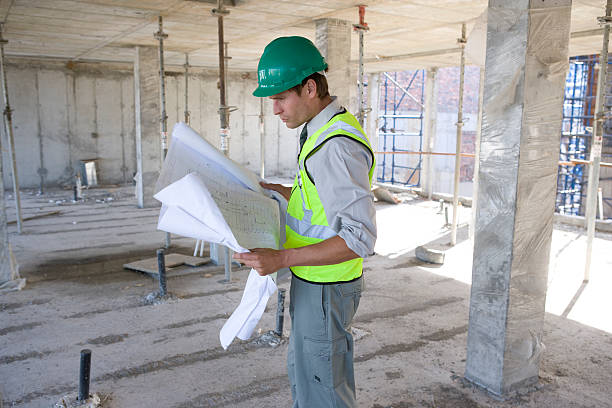Many professionals see home inspector continuing education as a formality, but it’s actually one of the smartest ways to stay relevant, confident, and more marketable. From keeping your home inspector license renewal on track to choosing effective home inspection CE courses, the right training turns compliance into real career growth.
A License Is Earned Once, but Learning Never Stops
Every home inspector knows that the learning doesn’t end after getting licensed. Building codes change, materials evolve, and new inspection tools hit the market every year. What separates average inspectors from great ones is how quickly they adapt. That’s where home inspector continuing education steps in. It’s not just a checkbox; it’s the difference between being current and being left behind.
Many inspectors see CE hours as a headache, something to get done before the renewal deadline. But think about it this way- clients trust inspectors who talk confidently about the latest standards and safety practices. If you’re not updating your skills, someone else is.
The Real Value Behind Every CE Hour
There’s more to continuing education than keeping your license valid. Each hour you invest builds real-world confidence and gives your work more credibility. When you finish a home inspector license renewal course, you’re not just following state rules; you’re improving how you assess properties in the real world.
You can spot small safety concerns faster, explain technical details better to clients, and reduce the chance of missing something important during an inspection. Over time, those small advantages add up to more referrals, stronger client reviews, and consistent business growth.
Learning That Fits Real Schedules
Most inspectors have packed workdays, traveling from one site to another. Taking time for training can seem unrealistic. But modern home inspection CE courses are designed for flexibility. You can study at your own pace, even after hours, from any device. That means learning doesn’t have to compete with your workload anymore.
Many online providers offer easy-to-follow modules that focus on real scenarios instead of just textbook definitions. That makes the learning process quicker and more meaningful. It’s practical learning for people who like practical results.
Turning Regulations Into Real Opportunity
Rules and standards may change often, but that’s not a problem- it’s an advantage if you stay informed. Inspectors who understand updates to building codes can use that knowledge to attract more clients. Property buyers and real estate agents prefer working with professionals who sound informed, not outdated.
If you’re completing building inspector PDH courses, you’re already taking steps to stay ahead. These courses teach you how new materials, electrical systems, or plumbing designs affect home safety and compliance. That makes you a resource people trust, not just another name on a referral list.
What You Actually Gain from Continuing Education
Let’s make it simple. Continuing education does more than just renew your license. It helps you:
- Stay updated with code changes and safety standards
- Improve the accuracy of your reports
- Communicate findings more clearly to clients
- Build stronger credibility with real estate professionals
- Increase your earning potential through higher trust and referrals
Each of these outcomes builds on the other. Learning may take hours, but those hours protect your reputation in the long run.
Learning That Pays Off on the Job
Imagine walking into a home built with newer composite materials or updated HVAC systems. Without recent training, you might miss key issues. But if you’ve taken recent home inspection CE courses, you already know what to look for. That’s where your investment pays off.
Continuing education also teaches soft skills like handling client questions and writing detailed yet clear reports. These skills may seem small, but they’re what turn a one-time client into a repeat referral.
How to Choose the Right Course Provider
Not all CE providers offer the same value. Look for platforms that focus on applied learning, not just passing an exam. Good providers keep content updated and easy to understand. They explain changes in plain language, giving you examples you can relate to your inspections.
Also, check that the provider is approved by your state licensing board. Reliable platforms will show that information upfront, so you know your CE hours count toward home inspector license renewal.
When CE Becomes Your Competitive Advantage
Inspectors often compete in tight markets. Every small improvement in knowledge or communication can set you apart. Clients remember the inspector who explains things simply, gives practical advice, and seems genuinely knowledgeable. Continuing education helps you be that professional.
Learning about new inspection tools, moisture detection technology, or updated safety codes doesn’t just keep you compliant; it keeps you relevant. You start turning training into marketing power because confidence always stands out.
Turning Knowledge Into Better Client Experience
Clients rarely remember every technical term in an inspection report, but they always remember how confident and informed you made them feel. When you invest in home inspection CE courses, you’re not just ticking a renewal box; you’re sharpening your ability to guide clients through high-stress decisions.
You learn how to explain issues in plain language, point out practical fixes, and help homeowners feel secure in their choices. That kind of communication skill is built through learning and experience, not luck.
The result is more trust, fewer disputes, and stronger referrals. Every updated code or new inspection technique you study eventually shows up in better client satisfaction. That’s how continuing education quietly turns into repeat business and long-term professional credibility.
FAQs: Staying Current as a Home Inspector
Q1: Why is continuing education important for home inspectors?
A1: Continuing education keeps inspectors current with the latest standards and building codes. It helps avoid costly mistakes and keeps your work compliant with state requirements. For example, most states require home inspection CE courses to renew your license.
Q2: How often do I need to complete my CE hours?
A2: Every state has its own renewal cycle. Some require CE every year, others every two years. It’s important to track your timeline for home inspector license renewal to avoid penalties or delays in your certification.
Q3: What topics are usually covered in CE or PDH courses?
A3: Common topics include safety standards, structural systems, energy efficiency, HVAC inspection, and updates in local building codes. Building inspector PDH courses often include specialized topics like electrical systems, plumbing updates, or environmental safety.
Q4: Can I take CE courses online?
A4: Yes, most providers now offer online options for home inspector continuing education. This makes it easier for inspectors to learn at their own pace and complete their renewal requirements without interrupting their work schedules.
Q5: Do CE hours help me grow my business?
A5: Absolutely. Inspectors who keep learning earn client trust faster and handle inspections more confidently. That often leads to repeat business and more referrals.
Keep Learning, Keep Leading
The most successful inspectors don’t see CE as paperwork; they see it as an upgrade. Every hour of learning adds a layer of expertise that clients can see and feel. You’re not just renewing a license, you’re renewing your reputation.
DiscountPDH has made this process smooth, flexible, and meaningful. We provide approved home inspection CE courses and building inspector PDH courses that fit real schedules and real goals. Every course we offer is designed to help inspectors strengthen their knowledge, meet licensing requirements, and stay confident in a changing industry.
Take your next course with DiscountPDH and be ready to make your CE hours count. This will indeed turn your learning into your strongest business advantage.

